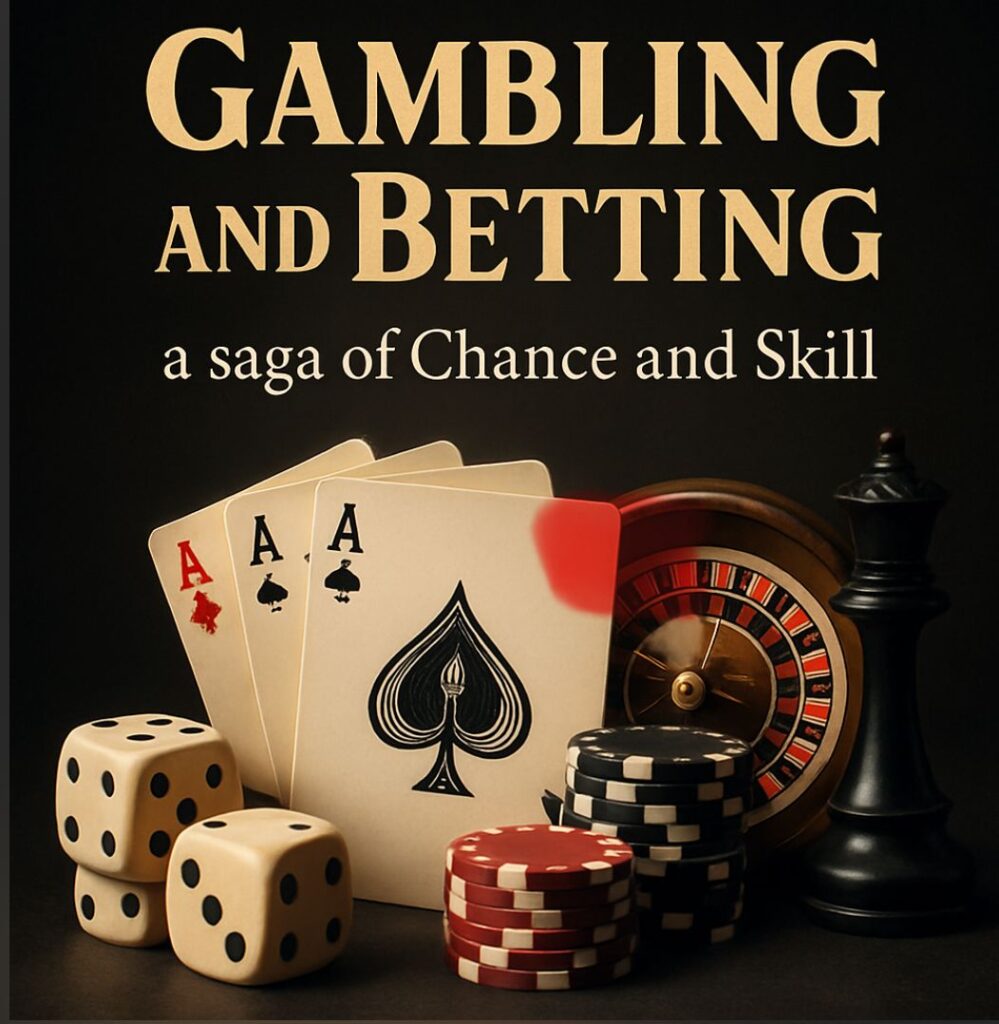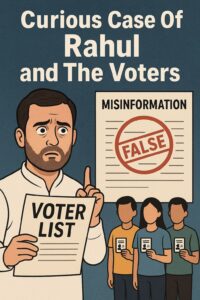India’s betting laws are bowling wide balls at reality

In India, betting on a horse is legal, but betting on Virat Kohli hitting a century can land you in jail. This colonial-era absurdity costs India billions while enriching criminals. Is it time to hit prohibition for six.?
In a country where 1.4 billion people breathe cricket, betting on the sport you love most can land you in jail. Yet, you can legally bet your life savings on which horse crosses a finish line first. Welcome to India’s gambling laws a colonial-era relic that’s as outdated as using a typewriter to send emails.
The Public Gambling Act of 1867 still governs our betting landscape, criminalizing cricket betting while mysteriously exempting horse racing because it’s deemed “skillful.” This isn’t just ironic, it’s catastrophically counterproductive. While lawmakers sleep peacefully thinking they’ve solved the problem, millions of rupees flow through underground “Satta” networks every single day, funding criminal enterprises and corrupting the very sport they claim to protect.
Here’s the uncomfortable truth: Banning cricket betting hasn’t stopped it, it’s made it worse.
Sixes and Scandals: The Underground Empire We’re Feeding
Every time Virat Kohli steps up to the crease or Jasprit Bumrah runs in to bowl, thousands of illegal bets are placed across the country. The underground betting industry isn’t just surviving the ban it’s thriving because of it. Match-fixing scandals, criminal networks, and massive revenue losses to the government are the direct consequences of our head-in-the-sand approach.
Consider the bitter irony: States like Kerala, Maharashtra, Punjab, and Sikkim legally operate lotteries worth millions pure games of chance that generate substantial government revenue. Platforms like Playwin flourish under legal protection. Festival card games happen in every household without anyone batting an eyelid. Yet cricket, a skill-intensive sport requiring tactical brilliance, weather analysis, and deep player knowledge, remains criminally banned.
This isn’t policy it’s hypocrisy in action.
The Bihar Bottle Parallel: When Prohibition Becomes the Problem
Remember how alcohol prohibition worked out in Bihar and Gujarat? Spoiler alert: it didn’t. Banned substances don’t disappear, they go underground, become more dangerous, and fuel criminal enterprises. The same principle applies to cricket betting.
Every day that cricket betting remains illegal, we’re essentially handing over control of a multi-billion-rupee industry to criminals. We’re choosing chaos over regulation, corruption over taxation, and underground syndicates over transparent governance.
The question isn’t whether people will bet on cricket, they already are. The question is whether we want that money flowing to criminals or contributing to national development.
The Derby Dream: Turning Passion into Progress
Imagine walking into a legal, regulated environment where you can bet on the Dadar Dynamos versus the Bandra Blasters in a neighbourhood cricket derby. Picture transparent odds, fair play enforcement, and every rupee you spend contributing to grassroots cricket development and government revenue instead of funding illegal networks.
This isn’t fantasy, it’s entirely achievable. Cricket betting, when properly regulated, can become a powerful economic engine that:
- Generates substantial tax revenue for public development
- Creates legitimate employment in sports analytics, odds-making, and platform management
- Funds grassroots cricket infrastructure in communities nationwide
- Eliminates criminal betting syndicates by offering legal alternatives
- Protects consumers through regulated, transparent platforms
Skill vs. Chance: The Legal Logic That’s Long Overdue
Here’s where our current laws completely lose the plot. Horse racing gets legal protection because it involves skill—analysing form, understanding track conditions, studying jockey performance. But cricket? Apparently, predicting whether a batsman will score a century based on his recent form, the pitch conditions, weather forecast, and bowling attack is pure luck.
Anyone who’s ever played or watched cricket seriously knows this is nonsense.
Cricket betting involves deep skill: understanding player psychology, pitch behaviour, team strategies, weather impacts, and countless other variables. If anything, cricket betting requires MORE skill than horse racing because there are MORE variables to analyse. The legal distinction between “skill” and “chance” that allows horse racing while banning cricket is not just illogical, it’s insulting to every cricket analyst in the country.
The Vulnerability Trap: Protection Through Regulation, Not Prohibition
Critics rightfully worry about vulnerable populations losing their savings to betting. This concern is valid and important, but prohibition isn’t the solution. Proper regulation is.
Right now, illegal betting platforms operate without any consumer protection. No spending limits, no cooling-off periods, no responsible gambling education, no age verification, no financial safeguards. Users are completely exposed because there’s no legal framework to protect them.
Legalization with proper safeguards would actually protect vulnerable populations better than the current system.
A regulated cricket betting environment could include:
- Mandatory spending limits based on income verification
- Cooling-off periods for heavy users
- Educational campaigns about responsible gambling
- Professional support for problem gambling
- Age and identity verification systems
- Transparent odds that prevent manipulation
The Revenue Reality Check: What We’re Leaving on the Table
While we debate ethics, other countries are laughing all the way to the bank. The global sports betting market is worth over $100 billion annually. India, with its cricket-obsessed population, could capture a significant share of this market through regulation instead of watching it flow to offshore illegal operators.
Every day we delay legalization; we’re essentially writing a check to criminal organizations instead of our own government.
The revenue potential is staggering:
- Direct taxation on betting platforms and winnings
- Licensing fees from regulated operators
- Employment generation across multiple sectors
- Technology and innovation in Indian fintech and sports analytics
- International investment in Indian sports infrastructure
The First Ball of a New Innings: Why Cricket Betting is the Perfect Starting Point
Legalizing cricket betting isn’t about solving all gambling issues overnight, it’s about taking the first sensible step toward comprehensive reform. Cricket’s popularity, skill-based nature, and existing illegal market make it the perfect test case for modern gambling regulation.
Success here creates a blueprint for broader gambling reform while immediately addressing our most pressing betting-related problems. It’s a policy approach that’s both pragmatic and transformative. The choice is simple: Continue feeding criminal networks through prohibition, or start building a regulated, beneficial system that serves everyone’s interests.
Beyond the Boundary: The Bigger Picture
Our lawmakers must realize that good governance isn’t about moral posturing it’s about practical solutions that work in the real world. The current system isn’t protecting anyone; it’s enriching criminals while depriving the government of legitimate revenue and citizens of consumer protection.
Cricket betting legalization represents more than policy reform it’s about India finally stepping into the modern era of sports governance. The time for half-measures and colonial-era thinking is over. Indians are going to bet on cricket regardless of what lawmakers decide. The only question is whether that activity happens in regulated, beneficial environments or continues fueling criminal enterprises.
The ball is in our lawmakers’ court. It’s time they play it forward instead of defending a position that’s already been overrun. The future of Indian cricket and Indian sports governance depends on making this crucial first move toward comprehensive, sensible reform. Every day of delay costs us revenue, feeds corruption, and proves that we’re still governed by laws written when cricket was barely invented.
It’s time to hit prohibition for six and start a new innings of responsible regulation.


